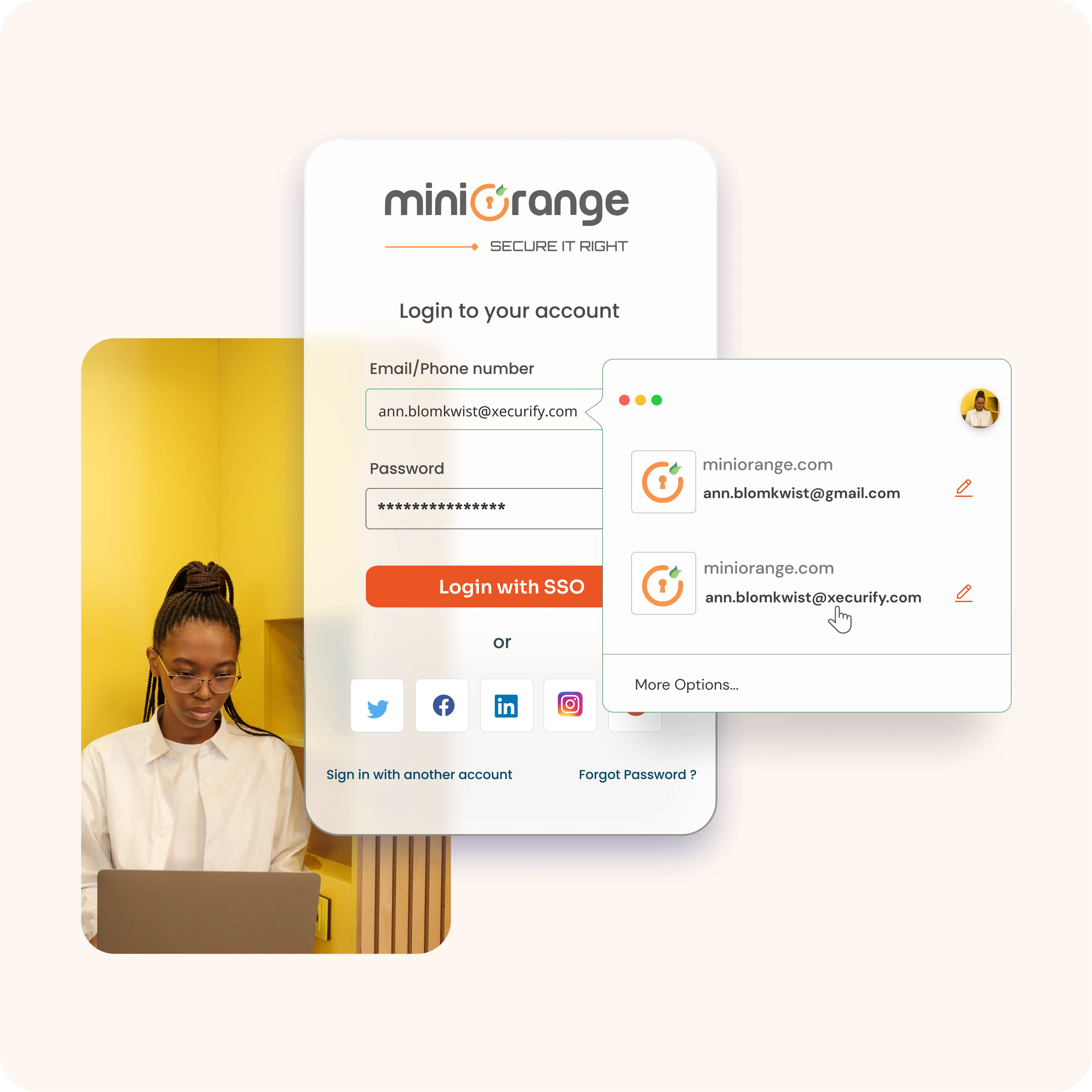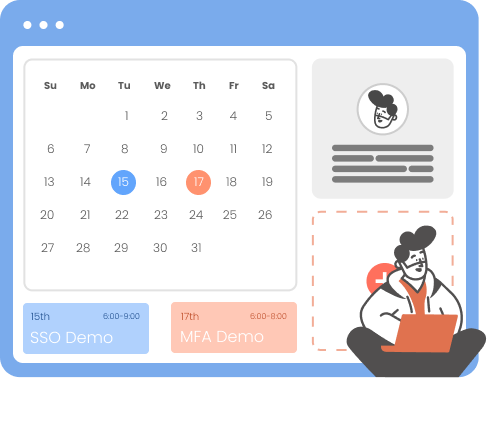Need Help? We are right here!
Search Results:
×






SAML Single Sign-On (SSO) is an authentication standard that allows users to log in once and access multiple applications with the same credentials. Using Security Assertion Markup Language (SAML), an Identity Provider (IdP) securely shares login details with Service Providers (SPs), eliminating the need for repeated sign-ins and reducing password management issues for businesses and users alike.
When you use miniOrange as your SAML Identity Provider (IdP), the process of logging into various applications becomes seamless and secure. Here’s how it works.
1. User Attempts to Access an Application
A user tries to access an application (known as the Service Provider or SP) that requires authentication.
2. Redirection to miniOrange
The application redirects the user to miniOrange, the Identity Provider, to verify their identity.
3. User Authentication
miniOrange prompts the user to log in (if they havent already). Once the user is authenticated, miniOrange prepares a SAML response containing the user’s credentials and permissions.
4. SAML Response Sent to Application
The SAML response is securely sent back to the application, confirming the user’s identity and what they are allowed to do.
5. Access Granted
The application receives the SAML response, verifies it, and grants the user access to the requested resources.

Enable SAML Single Sign-On (SSO) with external identity sources like Active Directory, ADFS, HR systems, Microsoft 365, and G Suite for centralized access.
Add or remove users and manage groups in one portal. Simplify SAML-based single sign-on administration while maintaining strong access control.
Create branded, multilingual SAML SSO login pages for staff and partners, offering a consistent and familiar sign-in experience.
Set roles, permissions, and policies with precision. Gain SAML SSO login insights through reports, exports, and SIEM integrations.
Meet GDPR, PCI DSS, and SOC standards using SAML 2.0 based single sign-on while protecting user credentials and sensitive data.
Connect SAML Single Sign-On authentication to thousands of apps, supporting growth from small teams to enterprise environments.
Identity solutions from miniOrange can be easily deployed in your organization's existing environment.
Combine SAML Single Sign-On (SSO) authentication with secure password storage. Employees can save and autofill credentials while signing in to all connected apps with one SAML login.
Control access with adaptive SAML SSO policies based on device, IP range, or user location. Block high‑risk logins while trusted users continue to access apps without disruption.
Add MFA to SAML Single Sign-On for stronger protection. Require OTPs, biometrics, or push approvals so logins stay secure even if a password is compromised.
Extend SAML-based single sign-on to older software, internal tools, and custom-built systems. No need to replace infrastructure — bring all apps under one secure login.
Enable users to log in automatically with their Windows credentials. SAML SSO recognizes trusted devices and domains, removing the need for repeated password entry.
Simplify onboarding and offboarding with SAML Single Sign-On automation. Accounts are created, updated, or removed across connected apps instantly, cutting IT effort and security gaps.

miniOrange offers 6000+ pre‑built SAML Single Sign-On (SSO) integrations to help enterprises securely connect to cloud apps, in‑house tools, and on‑premise systems — without the need to maintain each integration manually. With our SAML 2.0 based single sign-on service, your team can log in once and access applications like Salesforce, Google Workspace, Office 365, SAP, and many more using one trusted SAML login.
Explore the miniOrange App Integration Catalog








*Please contact us to get volume discounts for higher user tiers.

5.0
"SSO for Cloud base app"
It was exceptionally good experience during POC. Team was very helpful right from integration to check the actual output of the product... Read more

5.0
"Seamless SSO Solution with Exceptional Service"
miniOrange offers the best user experience for Single Sign-On (SSO)... Read more

5.0
"Great MFA Product & support"
Overall very good & stable solution. We are using this product for more than 3 years now. Our use case is mostly MFA for VPN. Great Service.
SAML Single Sign-On (SSO) allows users to log in once and access all enterprise apps instantly. It removes the hassle of juggling multiple passwords and repeated logins, helping employees focus on their work instead of managing credentials.
With SAML 2.0 based single sign-on, authentication is centralized and protected. Stronger security controls reduce the risk of password theft, and built‑in compliance support helps meet GDPR, PCI DSS, and SOC requirements.
SAML Single Sign-On authentication reduces helpdesk calls for password resets, simplifies user management, and automates access provisioning, saving IT teams time and lowering operational costs.
SAML Single Sign-On (SSO) is an authentication method that allows users to log in once and gain access to multiple applications. It uses Security Assertion Markup Language (SAML) to securely exchange authentication data between an Identity Provider (IdP) and Service Providers (SPs).
SSO is the concept of one login for multiple apps, while SAML is one of the protocols used to enable that login. In short, SAML powers SSO by securely transferring authentication information between systems.
SAML 2.0 is the latest version of the SAML standard. It provides stronger security, supports single logout, and is widely adopted by enterprise applications for SAML-based single sign-on.
OAuth is primarily used for authorization (granting access to data), while SAML is mainly for authentication (verifying identity). Both can support SSO, but SAML SSO is more common in enterprise apps, and OAuth is more common in consumer apps and APIs.
To set up single sign-on using SAML, you configure your Identity Provider (IdP) and Service Provider (SP), exchange metadata, set security certificates, and test the authentication flow. Many providers, like miniOrange, simplify this process with pre-built integrations.
Yes. SAML Single Sign-On (SSO) works for both web and mobile applications, allowing users to authenticate once and securely access all connected systems, regardless of the device they use.
